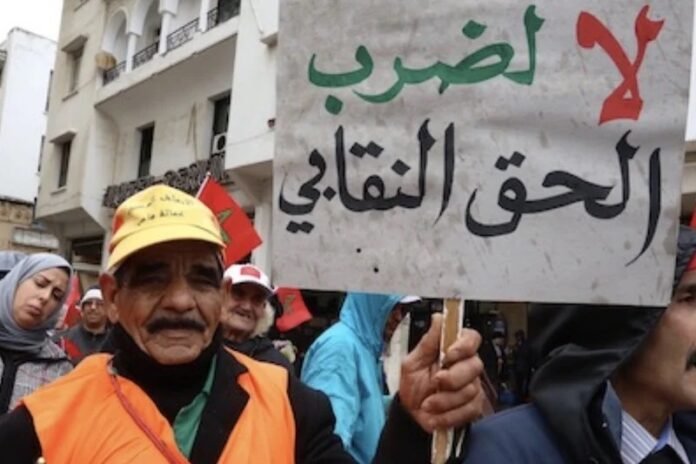In the ongoing debate around the draft organic law No. 97.15, which aims to establish the conditions and procedures for exercising the right to strike in Morocco, demands for withdrawing this bill from Parliament are intensifying.
This demand raises the question: Could withdrawing the bill mark the beginning of a fundamental change in how the government handles workers’ rights?
What Is the Background of the Unions’ Position?
Unions consider the new draft law to be a “restrictive law” aimed at limiting and criminalizing the right to strike, a constitutionally guaranteed right. According to the Moroccan Workers’ Union (UMT), the current draft includes provisions that hinder the actual exercise of this right, as it grants the Prime Minister powers to prohibit strikes and restricts the categories of workers eligible to exercise this right. These union stances reflect fears that the bill seeks to weaken the labor movement and undermine its freedom to defend workers’ rights.
The Role of the Economic and Social Council in the Debate
The Economic, Social, and Environmental Council (CESE) has pledged to engage with the unions’ memorandums and listen to their demands. However, the question remains whether the council’s role will extend beyond mere consultation to actively influencing amendments to the bill to achieve a balance between workers’ rights and government requirements.
Will Implementing the Bill as It Is Deteriorate Workers’ Conditions?
Union concerns include penalties such as fines and imprisonment, raising fears about the impact on trade union freedom in Morocco. If the government continues to ignore these objections, it could lead to increased protests and strikes that may threaten social stability.
Conclusion: Will the Government Reconsider the Bill?
All eyes are now on the government to see whether it will take into account the observations of the unions and the CESE. Withdrawing the bill from Parliament could be the beginning of a more comprehensive social dialogue that considers the interests of all parties and ensures the preservation of the constitutional right to strike while maintaining economic and social stability.
This issue raises fundamental questions about the balance of power between the government and unions, and how this balance may affect the future of basic freedoms in Morocco.




